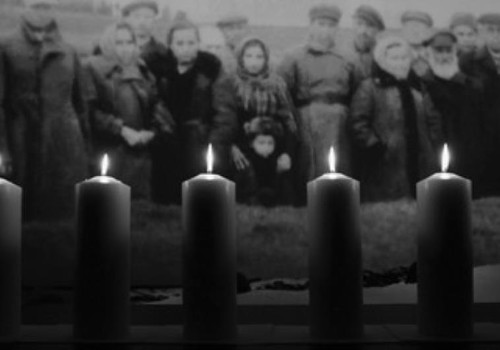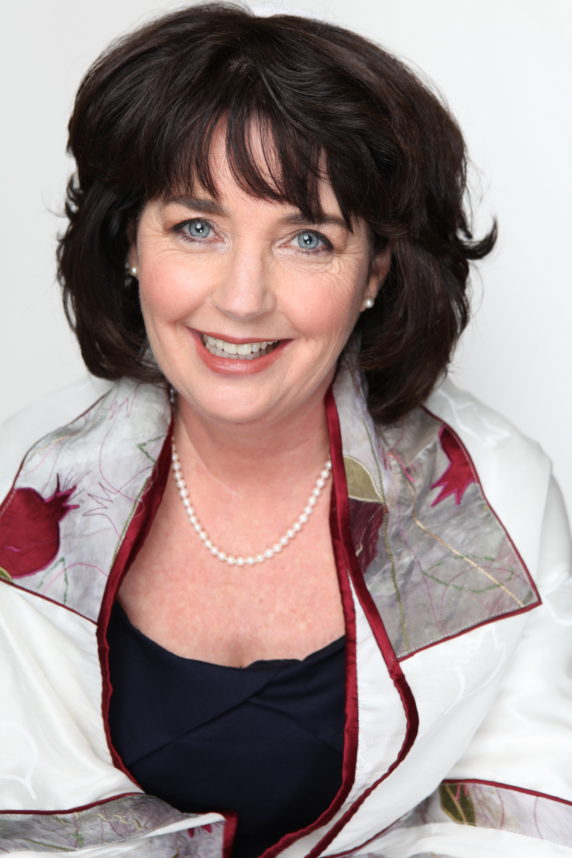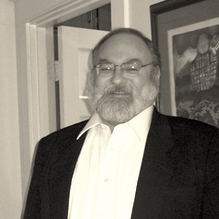 Memorial candles
Memorial candles Every year now, in the midst of apples and honey and family recipes and the sweet new beginnings of Rosh HaShanah, I am already looking ahead to Yom Kippur, thinking of the first Yizkor book in which my mother’s name was included and the first Yizkor service in which I, too, was among those mourning a parent. Every Rosh HaShanah reminds me, again, of how every year since that first year, the High Holy Days have been connected to her yahrzeit and private, personal mourning and memories and to the first Yizkor service of the new year. Every High Holy Days brings me the opportunity to remember and mourn publicly, with those newly-bereaved, as I was that year, and with those who have learned, as I have, that there is a beautiful balance between sadness and comfort when we acknowledge our griefs in community.
Of course, I knew long before my mother’s death that the ten days of the Yamin Noramim—the Days of Awe—are filled with reminders of the brevity and uncertainty of life. The liturgies of Rosh HaShanah and Yom Kippur reiterate the reality of our mortality. The Unatana tokef prayer, especially, uses graphic images to remind us of our reality: that even as we wish one another to be inscribed and sealed for a good year, we really have no idea what sorrows and joys await us. But the year that she was diagnosed and we were told that she would not survive more than a few months—and in fact died within weeks—was the first Rosh HaShanah that I had just buried a loved one, and, I think, the first time I understood the Unatana tokef.
Every year since that year, the High Holy Days make me more aware, again, of mortality. Of course, they are supposed to. The High Holy Days are intended to be awesome; they are infused with a sense of urgency that encourages us to not engage in denial, to not postpone, to not avoid difficult conversations and decisions. In heightening our awareness that life ends and that there is never enough time, the process of engaging in teshuvah—of turning, returning and being turned—is intended to disrupt us, to wake us up and shake us out of complacency. The High Holy Days push us to reflect on life’s big questions: who we are, what our purpose is, what our lives mean, how we want to be remembered.
For me, the season of the High Holy Days is also the time that I turn over garden soil, harvest the last of summer crops, plant winter vegetables, and rake up feathers from my molting chickens. I think of this as a naturally pensive time, the turning of the seasons reminding me that I’ve lived through another year and that so many have not. The timing of the High Holy Days means that the natural world itself reinforces the theme of turning and returning: summer has ended, the daylight is changing, leaves are turning colors and falling from trees, the Autumnal Equinox—which this year, in the Northern Hemisphere, took place on the second day of Rosh HaShanah—momentarily balances day and night as exact equals. I like to think of the Yom Kippur Yizkor, the first Yizkor of the year, as the liturgical equivalent of the Autumnal Equinox: the opportunity to balance sorrow with consolation, the past with the present, regret with hope, private remembrances with public commemoration. Perhaps that is the reason why even those who otherwise eschew synagogue attendance show up for Yizkor—because grieving alone is painful and grieving together to reminds us that so long as there is a Jewish community we are not alone.
Rabbi Janet Madden PhD was ordained by The Academy for Jewish Religion-California. She serves as the rabbi of Temple Havurat Emet and Providence Saint John’s Health Center and has been a student of the Gamliel Institute.

[Ed. Note: We at Kavod v’Nichum and the Gamliel Institute hope that your holiday season – for those who celebrate – was meaningful and uplifting, and that you have been inscribed and sealed for a good, sweet year full of blessings. To those who engage in the work of the Chevrah Kadisha in the broadest sense be granted additional blessings for their participation in this holy endeavor and sacred labor. — JB]
___________
GAMLIEL INSTITUTE COURSES
LOOKING FORWARD: UPCOMING COURSE
The Gamliel Institute will be offering course 5, Chevrah Kadisha: Ritual, Liturgy, & Practice (Other than Taharah & Shmirah), online, afternoons/evenings, in the Winter semester, starting roughly in January, 2018. This is the core course focusing on ritual, liturgy, practical matters, how-to, and what it means (for everything other than Taharah and Shmirah, which are covered in course 2).
CLASS SESSIONS
The course will meet online for twelve Tuesdays (the day will be adjusted in any weeks with Jewish holidays during this course).
Information on attending the course preview, the online orientation, and the course will be announced and sent to those registered. Register or contact us for more information.
REGISTRATION
You can register for any Gamliel Institute course online at jewish-funerals.org/gamreg. A full description of all of the courses is found there.
For more information, visit the Gamliel Institute website, or at the Kavod v’Nichum website. Please contact us for information or assistance by email info@jewish-funerals.org, or phone at 410-733-3700.
_____________________
DONATIONS
Donations are always needed and most welcome to support the work of Kavod v’Nichum and the Gamliel Institute, helping us to bring you the conference, offer community trainings, provide scholarships to students, refurbish and update course materials, expand our teaching, support programs such as Taste of Gamliel, the Gamliel Café, and the Gamliel Gracuates courses, provide and add to online resources, encourage and support communities in establishing, training, and improving their Chevrah Kadisha, and assist with many other programs and activities.
You can donate online at http://jewish-funerals.org/gamliel-institute-financial-support or by snail mail to: either Kavod v’Nichum, or to The Gamliel Institute, both c/o David Zinner, Executive Director, Kavod v’Nichum, 8112 Sea Water Path, Columbia, MD 21045. Kavod v’Nichum [and the Gamliel Institute] is a recognized and registered 501(c)(3) organization, and donations may be tax-deductible to the full extent provided by law. Call 410-733-3700 if you have any questions or want to know more about supporting Kavod v’Nichum or the Gamliel Institute.
You can also become a member (Individual or Group) of Kavod v’Nichum to help support our work. Click here (http://www.jewish-funerals.org/money/).
___________
MORE INFORMATION
If you would like to receive the periodic Kavod v’Nichum Newsletter by email, or be added to the Kavod v’Nichum Chevrah Kadisha & Jewish Cemetery email discussion list, please be in touch and let us know at info@jewish-funerals.org.
You can also be sent a regular email link to the Expired And Inspired blog by sending a message requesting to be added to the distribution list to j.blair@jewish-funerals.org.
Be sure to check out the Kavod V’Nichum website at www.jewish-funerals.org, and for information on the Gamliel Institute, courses planned, and student work in this field also visit the Gamliel.Institute website.
RECEIVE NOTICES WHEN THIS BLOG IS UPDATED!
Sign up on our Facebook Group page: just search for and LIKE Chevra Kadisha sponsored by Kavod vNichum, or follow our Twitter feed @chevra_kadisha.
____________________
SUBMISSIONS ALWAYS WELCOME
If you have an idea for an entry you would like to submit to this blog, please be in touch. Email J.blair@jewish-funerals.org. We are always interested in original unpublished materials that would be of interest to our readers, relating to the broad topics surrounding the continuum of Jewish preparation, planning, rituals, rites, customs, practices, activities, and celebrations approaching the end of life, at the time of death, during the funeral, in the grief and mourning process, and in comforting those dying and those mourning, as well as the actions and work of those who address those needs, including those serving in Bikkur Cholim, Caring Committees, the Chevrah Kadisha, as Shomrim, funeral providers, in funeral homes and mortuaries, and operators and maintainers of cemeteries.
_____________________























 More news and opinions than at a Shabbat dinner, right in your inbox.
More news and opinions than at a Shabbat dinner, right in your inbox.